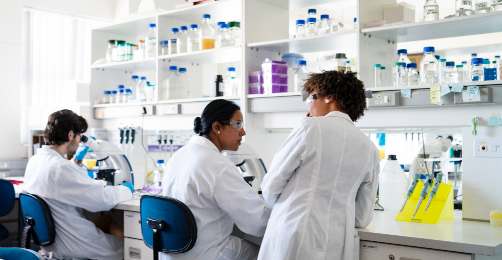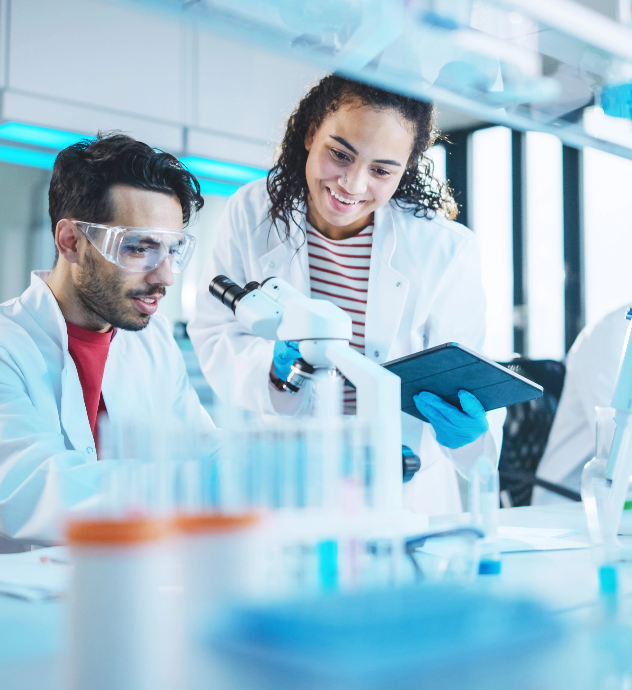
Bionano Laboratories offers innovative testing solutions designed to advance genetic testing applications for health care providers, researchers, and industry partners. Our new CLIA facility in San Diego as well other facilities across the globe will allow us to offer exceptional testing services while introducing transformative new technologies to the genomics landscape. These new capabilities will allow Bionano Laboratories to uncover more answers than ever before.
Our clinical testing services, previously known as Lineagen, was incorporated in 2006 while collaborating with two leading autism research facilities, the University of Utah and the Children’s Hospital of Philadelphia (CHOP), to pioneer important research identifying novel genetic markers associated with autism spectrum disorders (ASD)3-6, and subsequently started offering clinical testing for patients specializing on neurodevelopmental disorders in 2010. Acquired by Bionano Genomics in 2020, Lineagen has continued to offer a guideline-driven test menu and support services that can be leveraged to assist families along every step of the diagnostic testing process. Now doing business as Bionano Laboratories, Lineagen’s previous clinical testing services will be combined with the abilities of a new CLIA and CAP certified laboratory in San Diego to create a new enhanced organization to serve as a source of innovation within the genomics industry. Providing both clinical testing via laboratory developed tests (LDTs) and research and data services leveraging optical genome mapping, our laboratory is an ideal testing partner.

Clinical Laboratory Director
Dr. Hovanes received her B.S. degree in Genetics from the University of California, Davis and her Ph.D. in Molecular Biology from the University of California, Irvine. She completed her clinical cytogenetics and clinical molecular genetics trainings at the Cedars-Sinai Medical Center and University of California Los Angeles Intercampus Medical Genetics Training Program. She is a diplomat of the American Board of Medical Genetics as a Clinical Cytogeneticist and Clinical Molecular Geneticist. Over her twenty-year career in clinical diagnostics, she has held leadership roles in several laboratories providing molecular and cytogenetic testing in prenatal, pediatric, miscarriage analysis, preimplantation genetic testing, noninvasive prenatal screening, and oncology. With deep technical and clinical knowledge, she has extensive experience in collaborating with executive teams, medical teams, research and development departments, client services, and sales and marketing for strategic planning, expanding test offering, designing and implementing validation projects, and improving quality management programs.
Read MoreSenior Clinical Laboratory Director
Dr. Sahoo is a board-certified clinical cytogeneticist with over 18 years of experience in the field. He received his undergraduate and graduate medical education in India and completed his postdoctoral training in microbiology and human genetics at Duke University. In 2008, Dr. Sahoo joined Baylor College of Medicine as a faculty member in the Department of Human and Molecular Genetics. He also served as an ABMGG fellow in clinical cytogenetics at Baylor Genetics Laboratories. During this time, he was an integral part of the early design, validation, and implementation of array comparative genomic hybridization (CGH) for postnatal and prenatal clinical testing. He also played a key role in the discovery of several microdeletion/microduplication syndromes and the genetic basis of Prader-Willi syndrome. Over the past 18 years, Dr. Sahoo has held senior leadership positions at several leading genomics companies, including Signature Genomics, Quest Diagnostics, CombiMatrix, Invitae, and now Bionano Laboratories. His work has focused on understanding the genomic basis of Mendelian disorders, genotype-phenotype correlations, and the utilization of new technologies to understand the nature, frequency, and phenotypic impact of human genomic structural variation.
Read More